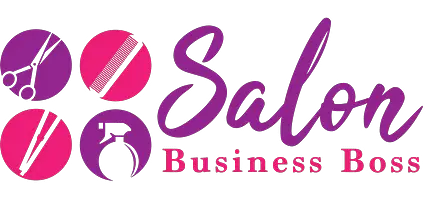Running a salon is about more than cutting hair. Being a hairstylist requires specialized skills to be successful and make your salon a thriving business. As you’re sifting through job applications, you’re probably wondering what skills your hairstylists need to have?
Generally speaking, a hairstylist needs to have the following skills:
• People skills and professionalism
• Physical stamina motor skills and concentration
• Time management
• Education and licensing
• A love of learning
People Skills and Professionalism
People Skills
Being a hairstylist means that you’re talking to a lot of different people from all walks of life. Part of the reason some people come into the salon is to have a conversation. A hairstylist will have to deal with everyone from small children who are getting their first haircut to an older person trying to reinvent themselves. Your hairstylist must know how to interact with all the colorful characters that come into your salon.
Basic tact is extremely helpful too. They need to be able to put on a cheery face to reassure that small child who’s terrified of the sharp objects. They need to be able to gently break the news that someone’s hair won’t support the style they saw in a magazine. They also need to be welcoming and able to roll with the punches.
Professionalism

It’s also important that your hairstylist is professional and judgment-free. There will be people who want their hair done in challenging ways. Some customers will confide things in a stylist that they would prefer not to know. There will be people with values that differ from you and/or your hairstylist. Your hairstylist will need to be able to meet those challenges.
Hairstylists also have to know how to work with and around each other. Since many salons pay on commission, there is a slight amount of competition involved. You must make sure your stylists keep the competition friendly and not have things boil over in front of customers. That sort of thing hurts everybody.
A salon thrives on word of mouth and repeats customers. If hairstylists are constantly complaining about their customers or judging them for their chosen hairstyles, those customers won’t be coming back. They may also leave bad reviews that deter new customers from coming in.
All that said, as an owner, you have to be professional with your stylists as well. Sometimes, that means knowing when to put your foot down when dealing with customers who have unrealistic expectations or are rude. Nothing makes hair stylists quit faster than an owner who lets customers treat them like doormats.
Physical Stamina, Motor Skills, and Concentration
Physical demands
When people think of physically demanding jobs, they typically think of jobs that require heavy lifting. Make no mistake though, a hairstylist’s job also comes with its own set of physical challenges. In most cases, a hairstylist is on their feet during the majority of their day. They have to do a lot of reaching and bending and may have to be in an uncomfortable position for a prolonged period. There is also a lot of repetitive motion that can lead to stress injuries like carpal tunnel syndrome.
When you’re in busy seasons like prom, wedding, and back to school, these demands can become more pronounced. Not only are they running around, assuming uncomfortable positions, and engaging in a lot of repetitive motion, they have to do things quickly. While there are things you can do as an owner to help them, such as making sure the adjustment mechanisms for your salon chairs are functional, you can never make all these demands go away.
Motor skills

A stylist needs to have excellent fine motor skills. Even for simple jobs that don’t require things like the application of chemicals, they are still working with scissors and other sharp objects. They need to be able to cut hair to precise lengths and for that, they need good hand-eye coordination.
A stylish needs motor skills the most when jobs that require chemicals as the measurements needed are often exacting. Too little and the chemicals won’t affect. Too much and the customer’s hair will be ruined, costing you a sale and getting you bad publicity. They also need these skills to execute quickly as many clients are pressed for time.
Concentration
These fine motor skills also require a lot of concentration. Busy salons can be loud with /TVs blaring, constant chatter, and the scent of varying types of hair chemicals blowing every which way. A good stylist needs to be able to tune this out and focus on their client’s needs and be able to engage them in conversation if the client desires it. A hairstylist who has that level of concentration is worth hiring.
Time Management
Importance of time management for stylists
The salon industry is competitive and clients don’t like to wait especially long beyond their scheduled appointments, particularly during busy seasons. If a hairstylist is making their clients wait, they’ll all too happily schedule an appointment at another salon. Thus, your hairstylist needs to be able to manage their time and know-how long a given appointment will take so they don’t overbook themselves.
A stylish with poor time management can cause problems for the entire salon. Backed-up waiting areas can quickly become chaotic. If the waiting area is by a window, potential walk-in customers will decide not to walk in. Bad reviews that are the fault of one stylist’s poor time management will cause your local community to believe that all the stylists in your salon are slow. Time management is a skill that can be learned and as an owner, you should expect that your hairstylists have it.
How you can help
As an owner, you can assist your stylist by installing a salon-specific Point of the Service system that keeps track of appointments. Hairdryers can help your stylists multitask. These can be helpful during the chaotic busy seasons. You can also help by making sure all the equipment in the salon is functional. Time spent trying to get equipment to work is time lost for the stylist and you.
You should also make it clear to customers that your stylist’s time is valuable. If a customer keeps not showing up to appointments or keeps being late, you should advise your stylists that they can refuse service. If a customer doesn’t want to adhere to your salon’s expectations, they don’t respect your stylists or you.
Education and Licensing
Where stylists get their education

Since there is so much to be a stylist, it does require a bit of education. There are several cosmetology schools throughout your state where people go and learn the trade. These schools teach everything a hairstylist needs to know. However, there are other ways hairstylists learn that don’t involve a classroom.
For some, a salon is a family business and they learn there. Others may get an apprenticeship under a stylist at a different salon. These paths into the profession should not be discounted. Regardless of where they get their education, the thing that matters is whether or not they have their license.
Licenses
Whether or not hairstylists should have to get licenses is something that is debated. Regardless of which side you fall on, your stylist needs to be licensed. If you’re knowingly hiring an unlicensed hairstylist, you are putting your business at risk. You could end up in serious legal trouble both in civil and criminal court. Particularly if an unlicensed stylist does something that harms a customer.
Check out how to get your liscenses HERE.
A Love of Learning
Even if your hairstylist is trained and licensed, there is always more to learn. The world of fashion is always changing. Customers are fickle and hairstyles can fall in and out of favor for basically any reason. Part of a hairstylist’s job is to know how to adapt to the trends.
If a hairstylist does not want to learn new things, they can become a problem. Customers don’t want to come into your salon hoping to get the latest style only to learn the stylist doesn’t know how to give that style. While there can be some good reasons for that scenario, such as a customer’s hair not being compatible with that style, a stylist not wanting to keep up is not one of those good reasons.
We hope that this article has helped you in your search for talent at your salon.
Related Questions

1. Where can I go to hire new stylists?
There are job search websites like Indeed.com and SimplyHired.com where people put their qualifications. If you want to be more direct, many beauty and cosmetology schools also help salons scout talent.
2. You mentioned something about apprenticeships. Could I offer those at some point?
It is possible as your salon gets bigger. However, there are certain rules and regulations governing apprenticeships that vary by state so it is best to familiarize yourself with those before putting an offer out there
Looking to start your own Salon? Get the documents you need to get organized and funded here.
Please note: This blog post is for educational purposes only and does not constitute legal advice. Please consult a legal expert to address your specific needs.

About the author. Entrepreneur and Salon Business Fan.
Hi! I am Shawn and I am a happy individual who happens to be an entrepreneur. I have owned several types of businesses in my life from a coffee shop to an import and export business to an online review business plus a few more and now I create online salon business resources for those interested in starting new ventures. It’s demanding work but I love it. I do it for those passionate about their business and their goals. That’s why when I meet a salon business owner, I see myself. I know how hard the struggle is to retain clients, find good employees and keep the business growing all while trying to stay competitive.
That’s why I created Salon Business Boss: I want to help salon business owners like you build a thriving business that brings you endless joy and supports your ideal lifestyle.

